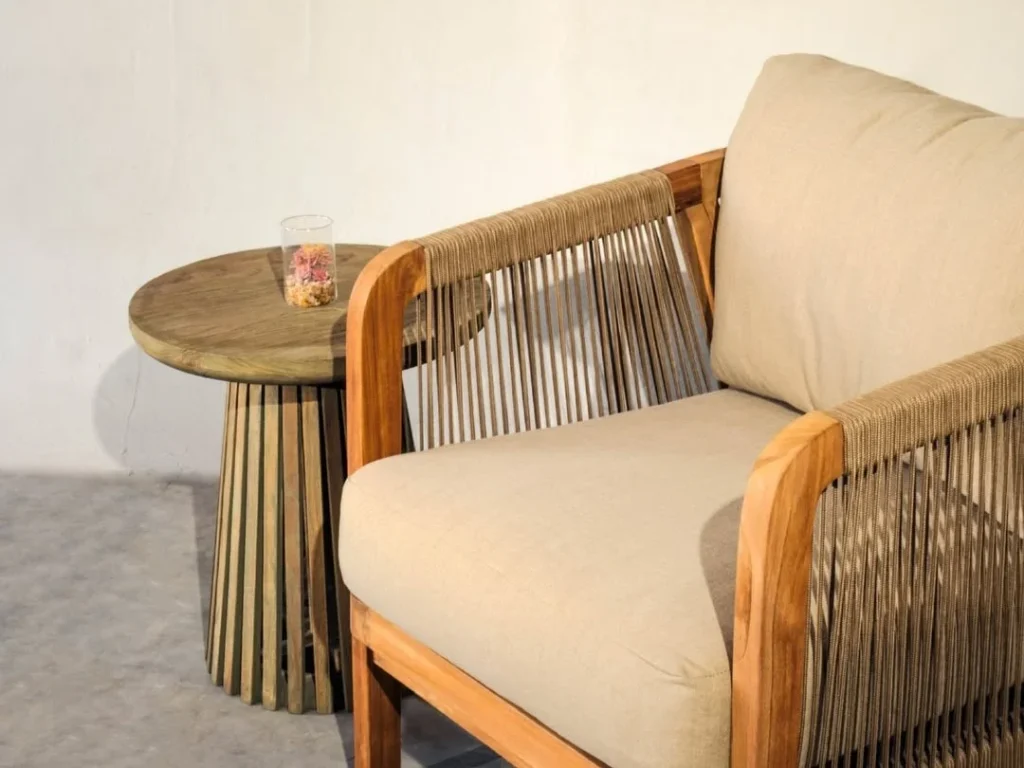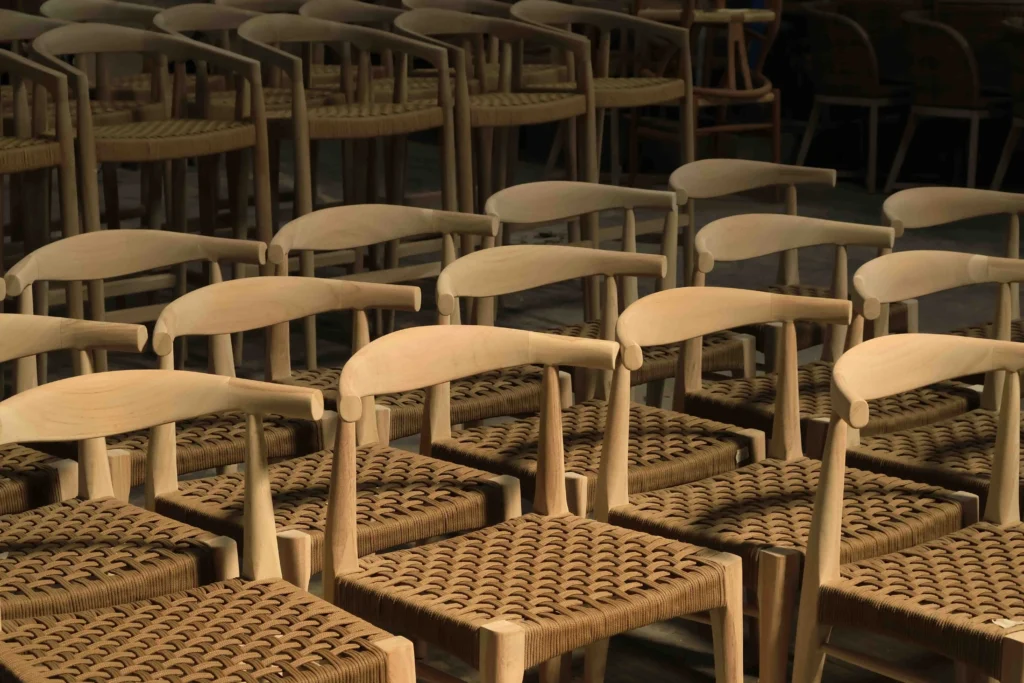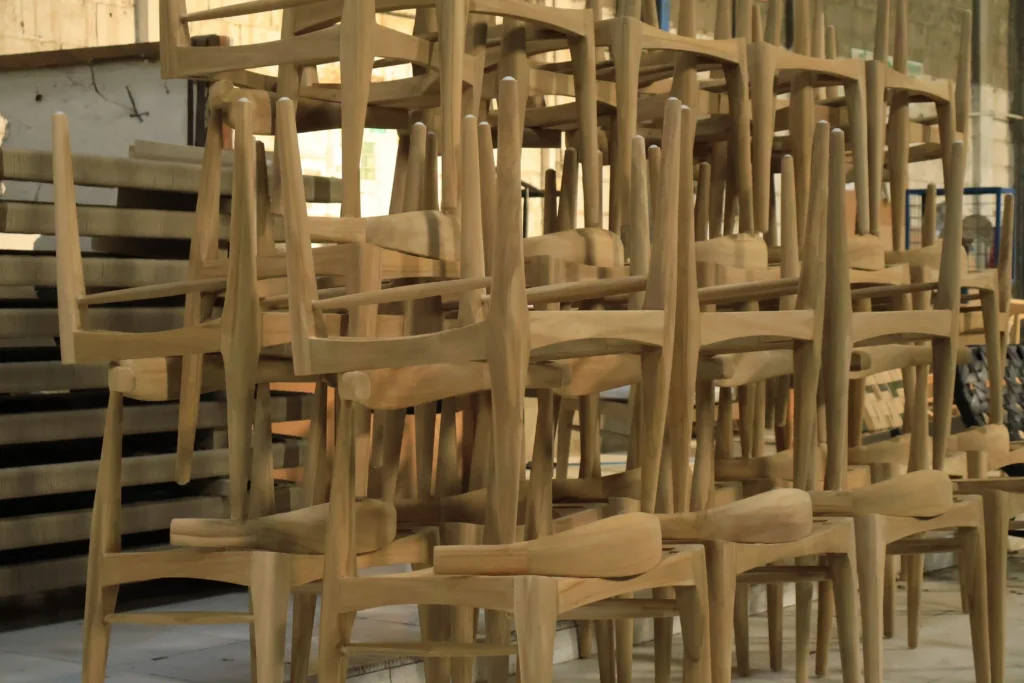Choosing a furniture supplier, particularly from Indonesian furniture suppliers, can either drive your business forward or set you back months. Whether you're a retailer, importer, or project-based company, picking the wrong supplier can cost you money, time, and reputation. In this article, we’ll walk through common red flags when sourcing from furniture manufacturers, especially in Indonesia, and how to avoid them.
The True Cost of Choosing the Wrong Furniture Supplier
Here’s a real example from my colleague a few years ago: An importer from Australia ordered a full container of custom teak chairs from a new supplier. When the container arrived, half the products were unfinished, some didn’t match specifications, and communication had gone silent weeks before shipping. This kind of disaster is more common than you think. Miscommunication, lack of transparency, and poor quality control can turn what seems like a profitable deal into a loss. This is why choosing the right Indonesian furniture manufacturers is so important.
7 Red Flags to Watch Out For When Choosing a Furniture Supplier
| Red Flag | Explanation | Warning Signs | What to Do |
|---|---|---|---|
| 1. Slow or Inconsistent Communication | Delayed responses or unclear answers can lead to missed shipping windows and lost revenue. | Hard to reach, replies after several days, avoids questions. | Work with suppliers who respond within 24–48 hours, give clear answers, and provide regular updates. |
| 2. Poor Sample Quality or Delayed Samples | Low-quality or misleading samples often indicate future quality issues. | Damaged samples, different from photos, or late deliveries. | Only work with suppliers willing to send accurate, real samples on time. |
| 3. Unclear or Unstable Pricing | Frequent price changes or missing cost breakdowns show a lack of transparency. | Sudden price adjustments, unclear quotations. | Ask if the price is valid for 30–60 days and ensure shipping, taxes, and other costs are included. |
| 4. No Verified Export Documentation | Legal exports require valid documents (invoice, packing list, bill of lading, SVLK, etc.). | Supplier avoids showing samples of documentation or lacks compliance knowledge. | Request sample documents before placing your first order. |
| 5. Overpromising on Capacity or Timeline | Saying “yes” to everything often leads to late shipments or production failures. | Unrealistic lead times, no clear production schedule. | Ask the supplier to walk you through their factory production schedule. |
| 6. Lack of In-House Production Capabilities | Trading companies without factories may cause quality and timeline problems. | Cannot show factory photos/videos or introduce production staff. | Choose a supplier with in-house production for better control and consistency. |
| 7. Vague or No Quality Control Process | A reliable supplier should have QC checks at every stage of production. | Cannot explain their QC process clearly. | Ensure they have material checks, in-process inspections, final QC, and photo/video reports. |
1. Slow or Inconsistent Communication
Many delays happen in furniture manufacturer companies are not only because of workload but also because the person in charge (PIC) lacks product knowledge, decision-making authority, or industry experience. This leads to:
- Delayed production decisions
- Misunderstood specifications → product errors
- Longer lead times
📌 What to Look For:
- Dedicated account manager for each buyer
- Empowered to make decisions within company guidelines
- Regular product & export regulation training
- Multi-channel communication (Email, WhatsApp, Zoom) with guaranteed response times
- Backup PIC system to avoid disruptions
Learn more about how slow or inconsistent communication become red flags in choosing furniture suppler: Harvard Business Review – Why Communication Breaks Down in Supply Chains
Choosing an Indonesian furniture manufacturer known for fast communication helps avoid many issues.
2. Poor Sample Quality or Delayed Samples
When suppliers outsource to multiple workshops, it’s almost impossible to maintain consistent standards in materials, craftsmanship, and finishing.
📌 What to Look for:
- 100% in-house production factory
- The same craftsmen who produce your sample also make your bulk order
- Multi-stage QC to detect any deviations early
Work only with an Indonesian furniture supplier willing to send real, accurate samples.
Learn how about how quality control plays an important role in choosing a furniture supplier: Global Trade Magazine – The Importance of Quality Control in Manufacturing
🔗 See MPP’s in-house production process
3. Unclear or Unstable Pricing
Some suppliers rush to send a quote without full cost analysis, resulting in frequent “price updates” that frustrate buyers and break trust that makes furniture manufacturer lose the chance to get more orders.
📌 What to Look for:
No mid-process changes unless buyer specifications change or raw material prices shift significantly with prior approval.
- Structured cost calculation before sending any quotation
- All-inclusive pricing covering materials, labor, packaging, transport, and export docs
- No mid-process changes unless buyer specifications change or raw material prices shift significantly, with prior approval
4. No Verified Export Documentation
Missing or incorrect paperwork can cause customs delays, fines, or even shipment rejection. Key documents include:
- Phytosanitary Certificate
- SVLK (Indonesian Timber Legality) Certificate
- Correct HS Codes
- Fumigation Certificate
📌 What to Look for:
- All certificates prepared and verified before production ends
- In-house export documentation team trained in over 10 global markets
- Pre-shipment checks and direct coordination with freight forwarders
5. Overpromising on Capacity or Timeline
Some suppliers accept large orders without checking labor, machinery, or material availability leading to delays or rushed, low-quality production.
📌 What to Look for:
- Detailed scheduling to ensure on-time delivery for all clients
- Capacity check before order confirmation
- Refusal to take orders beyond actual capacity without facility expansion plans
6. Lack of In-House Production Capabilities
Some suppliers are trading companies with no factories. They outsource production, which can lead to quality and timeline issues.
📌 What to Look for:
- Factory videos or photos
- Conversations with production staff
An Indonesian furniture manufacturer with in-house production offers better consistency.
7. Vague or No Quality Control Process
A reliable supplier should have inspections at each stage: materials, assembly, finishing, and packaging. If they can’t explain their QC process, that’s a red flag.
📌 What to Look for:
- In-process checks
- Final inspections with photo/video reports
What a Reliable Furniture Supplier Looks Like
Here is the summary of reliable manufacturers you should look for:
- Fast, honest communication
- Transparent pricing and schedules
- Proper samples
- Complete export documents
- In-house production
- Active quality control
Why MPP Furniture is a Trusted Indonesian Furniture Manufacturer
MPP Furniture has helped hundreds of retailers, wholesalers, and interior designers across the US, Spain, Australia, and more.
Why international buyers trust us:
- One-stop wood and rattan furniture sourcing
- Prompt & Reliable Communication – Replies Within 24 Hours
- Free product development
- OEM, private label, and customization
- 100% in-house production
- Quality checks at every stage
- Clear documentation and expert consultation
If you're seeking an Indonesian furniture supplier you can count on, MPP is ready.
🔗 Connect with us on LinkedIn
🔗 Follow our Company Profile
📺 Watch Our Company Profile Video
✆ Contact us via WhatsApp for a faster response
Conclusion: Avoid Costly Mistakes in Choosing a Furniture Supplier
Picking a supplier isn’t just about price. It’s about long-term value, stability, and trust. Watch for the red flags above, and choose a supplier like MPP Furniture that shows not just promises of reliability. As an experienced Indonesian furniture manufacturer, we’re here to support your success.
FAQ
What is the biggest red flag in choosing a furniture supplier?
Slow and inconsistent communication. It’s a sign of poor organization and reliability.
Should I always ask for a sample before placing an order?
Yes. It lets you verify quality and materials firsthand.
How do I verify a supplier’s export documentation?
Ask for samples of past exports, especially for SVLK or V-Legal certificates.
To understand more about legal timber export requirements in Indonesia, visit the official SVLK website.
What questions should I ask before working with a supplier?
Ask about production capacity, timelines, documentation, and factory setup.
Is it okay to use a sourcing agent instead?
Agents help, but direct factory partnerships give you more control and clarity.

Leading marketing and brand growth initiatives for MPP Furniture – an Indonesian teak and rattan furniture manufacturer exporting globally. Responsible for both strategic planning and hands-on execution across online and offline channels.




0 Comments